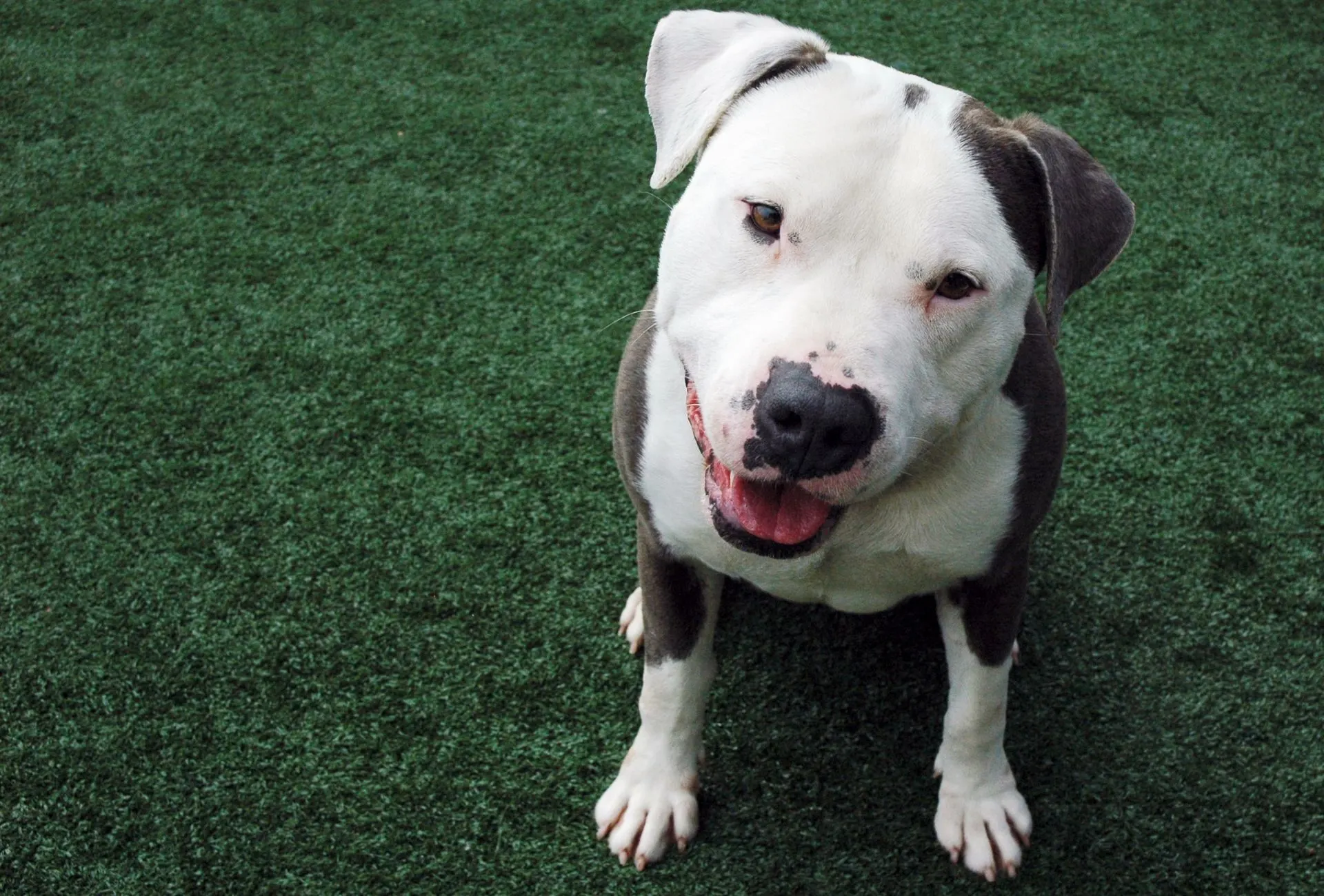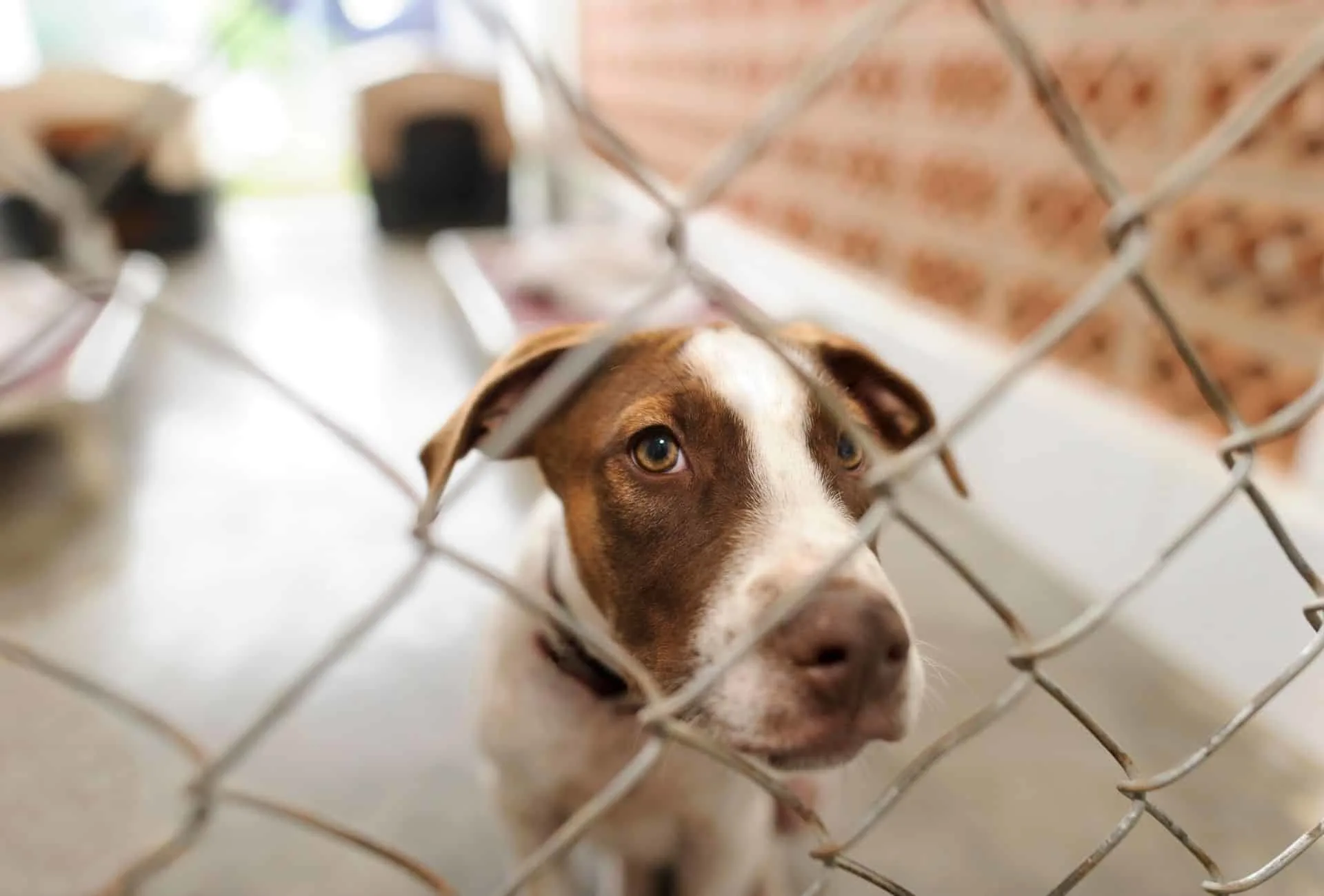While there are different factors that come into play when you’re bringing home your new companion (breed, energy level, age, medical history) they all have one thing in common.
After their final arrival, rescue dogs start going through different phases.
You may not know this, but when you adopt a rescue dog from the shelter or animal control, it’s like adopting an infant. They are in a new place and meeting new people for the first time.
Your new furry friend can go through 3 stages:
- Honeymoon period
Everything seems to go smoothly; can be the complete opposite where the first days or weeks seem like a nightmare - Adjustment period
Your dog’s true character shines through and he starts to relax. You may recognize this sadly isn’t their first time at the rodeo - Settlement period
Your rescue dog finally feels comfortable (usually takes months or even longer)
While some dogs show their true potential right away, it’s common that the honeymoon period (or devilishly scared period) lasts 2-4 weeks.
Only after this time will your dog start to show his true potential (positive as well as negative sides).
There is no one-size-fits-all approach to the adjustment period for your new fur baby.
However, I do have tips on how long it usually takes to adjust, how to make your rescue dog feel safe in his new environment, as well as what he may be going through when you bring him home for the first time!
How Long Does It Take a Rescue Dog to Adjust to New Owner?
While some rescue dogs seem to arrive on their first day, many dogs will need at least 30 days before fully adjusting to their owner.
It’s not uncommon to see rescue dogs take up to 3 months to fully adjust.
During this time, they can be scared of everything, including you.
I’ll go over a couple of things you should never do with a fresh rescue in a minute.
Remind yourself to stay calm and expect nothing.

Any anger outbursts may seriously harm your bonding. At best, it’ll set you back in your dog’s adjustment period.
It may seem like nothing is happening but trust me, progress is underway if you keep at it.
Dogs are just going through the process of acclimating themselves to being in a home with someone else who isn’t their original owner.
What Is The 3-3-3 Rule When Adopting a Dog?
The 3-3-3 rule is a friendly reminder of what to expect from rescues.
During the first 3 days, dogs have not yet arrived and may be really shy, anxious, or even mistrusting. After 3 weeks, behavior patterns should emerge as your dog starts to settle in. The 3-month mark is when you can expect your dog to have fully adjusted.
What should you do in the first 3 days?
In your dog’s first 3 days inside his new home, you shouldn’t ask much of him and expect nothing.
Provide their meals at scheduled times, but don’t be mad if they refuse to eat.
Provide 24/7 access to water but don’t force them to drink.
Check out my tricks on how to get your dog to drink water if you’re struggling with that.
Don’t expect your rescue to be potty-trained or trained in general, even if he’s an adult.
Even if he knows commands, don’t overwhelm him.
Don’t force interaction with your dog and give him access to his own safe space.
What you should do is introduce behavior patterns and rules you’d like to see (no begging, no counter surfing, not allowed on furniture you don’t want him to be on for the next years).
After the first 3 days until the 3-week mark, you can start your regular training, socialize your dog with people and animals, and so on.
After three months, dogs are generally settled into their new home.
It’s still possible that new behavioral issues can be uncovered on walks if you stumble upon unfamiliar objects or noises.
However, there’s still a bonding process after 3 months.
In theory, you’re working on your bond all your life, I’m still going on adventures with my Rottweiler girl and we’re strengthening our incredible bond daily.
Adopting a Rescue Dog the First Seven Days
The first seven days put a lot of stress on your rescue dog’s system. Be prepared for your dog to be really shy and at times even anxious.
It can take a while for your rescue’s personality to show itself and seven days ain’t that long.
But here are a couple of specific behaviors you can expect:
- Doesn’t like to be touched (I know, you have good intentions)
- Cowering under the table
- Easily startled by noises
- Barking (especially if it’s a learned behavior for them)
- Chasing cats, other animals, bikes, cars
- Refusal to walk
Now you have a rough idea of what you can expect the first seven days to be like with a new rescue dog.
Rescue Dog Honeymoon Period
The so-called honeymoon period is a time when your rescue dog is just so excited that they’re in a new home and have no idea what to do with themselves.
The honeymoon period can be a really fun phase for both you and the pup, but it also means they’ll likely need an adjustment period soon after their honeymoon ends. Sometimes, the honeymoon period is the calm before the storm.
However, you can experience the total opposite with your rescue dog and he might be really anxious and shy during the initial transitioning period, just to calm down during the next phases.
In any case, your dog will need some time to adjust and it’s important to take note of the 3-3-3- rule laid out above.
My Rescue Dog is Scared of Everything
Sometimes, your rescue dog will be so scared of everything that they may refuse to be touched and may avoid proximity to the people in their household.
This is an extreme reaction, but it can happen.

Don’t worry, this is not a testament against you as a dog owner, it’s just that your new dog probably had a rough time in life before he came to you.
Think about it, millions of street dogs, pups from puppy mills, neglected dogs, and those rescued from fighting rings.
Who can expect a dog to immediately adjust fully after a possibly traumatic event or plain neglect by humans?
To help them adjust and feel more comfortable with their new surroundings:
- Give your rescue dog a place where they have some control over what’s happening (crate or bed)
- As mentioned above, do not push your dog, it’ll only result in more adjustment time
- Work with positive reinforcement like treats, toys, praise
- Avoid getting mad if your dog refuses to be touched or fed
- Try to feed your dog from your hand to create a bond
- Don’t overwhelm your dog with new stimuli
How Do I Know If My Rescue Dog Is Happy?
Everybody wants to know whether or not their rescue dog is happy.
If you have a puppy, more likely than not he’ll have a big smile on his face and bounce around most of the time, they’re really resilient.
However, there are a couple of signs that may point toward a happy, comfortable dog.
As mentioned multiple times, you shouldn’t expect this to happen in the first 3 days or even weeks after arrival.
If these signs are there earlier, that’s awesome. But don’t expect it.
The happiness signs that you might want to keep an eye out for:
- Your dog seeks eye contact in unfamiliar situations
- Willing to work with you during training
- Brings you lots of toys to play
- Eats his food and drinks properly
- Seeks out places to sleep close to you (or even on you)
- Comfortable body language when you approach him
Conclusion
It’s important to remember that all rescue dogs have different personalities and adjustment periods.
If you’re considering becoming a pet parent, or if you already are one – be patient with your new family member!
The first few days or weeks are going to be hard. Your new pup will have a big adjustment period as they get used to their new life.
But don’t worry – most rescue dogs adjust eventually if you put in the work. Perhaps both of you settle into your new routine in no time!

Joan collins
Tuesday 29th of March 2022
Great info Danille. I really appreciate the help. Tx joan